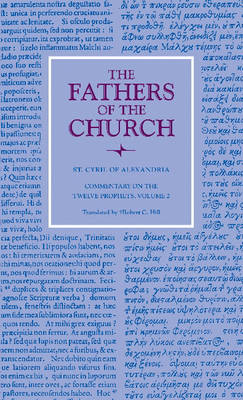Cyril of Alexandria's contributions to theology are not confined to his prominent role in the fifth-century christological conflict, but are also vital to the development of biblical exegesis. Drawing insights from older contemporaries, Cyril examines in depth the historical contexts of prophetic texts, utilizing his knowledge of events and geographical locations in deriving his interpretations. Imperfect though his knowledge is, his approach is worthy of admiration because it combines historical analysis with moral and spiritual perspectives in achieving a balance that cannot be labeled as either ""Alexandrian"" or ""Antiochene."" This balance is assured by the broad diversity among Cyril's sources, namely, Didymus the Blind, Jerome, and Theodore of Mopsuestia. Cyril in turn has exerted a direct influence on Theodoret of Cyrus, thus forging a link in the succession of patristic exegetical developments.For Cyril, as for the Fathers in general, the internal unity of the Bible guarantees that its texts can be applied to the interpretation of other texts within the scriptural canon. A focal point of Cyril's interpretation is the relationship between God and his people as it unfolds in the course of history, revealing a sovereign God who, while tolerating no infidelity, perseveres patiently in correcting the errant. This relationship is the basis of a motif that unifies the Old and New Testaments, with the prophets serving as precursors of the Savior; thus their proclamations, though often aimed at the events of their own times, speak to believers of all eras.
- ISBN13 9780813201160
- Publish Date 26 March 2008
- Publish Status Active
- Publish Country US
- Imprint The Catholic University of America Press
- Format Hardcover
- Pages 392
- Language English
